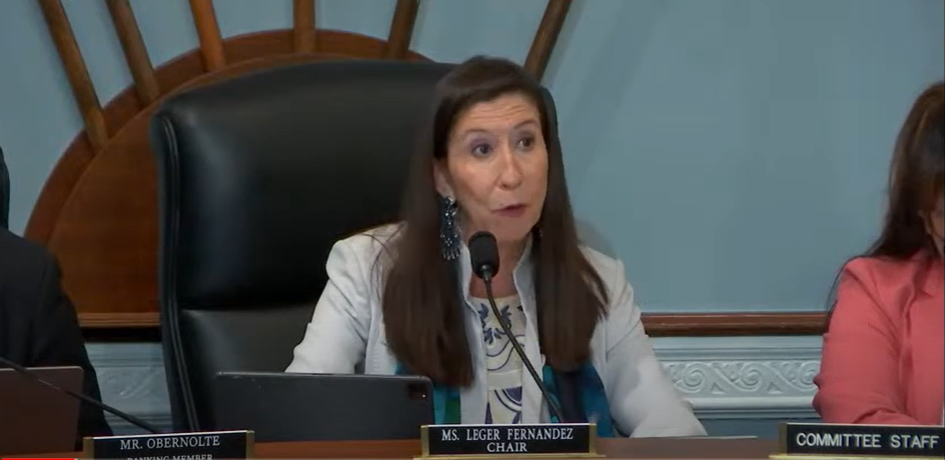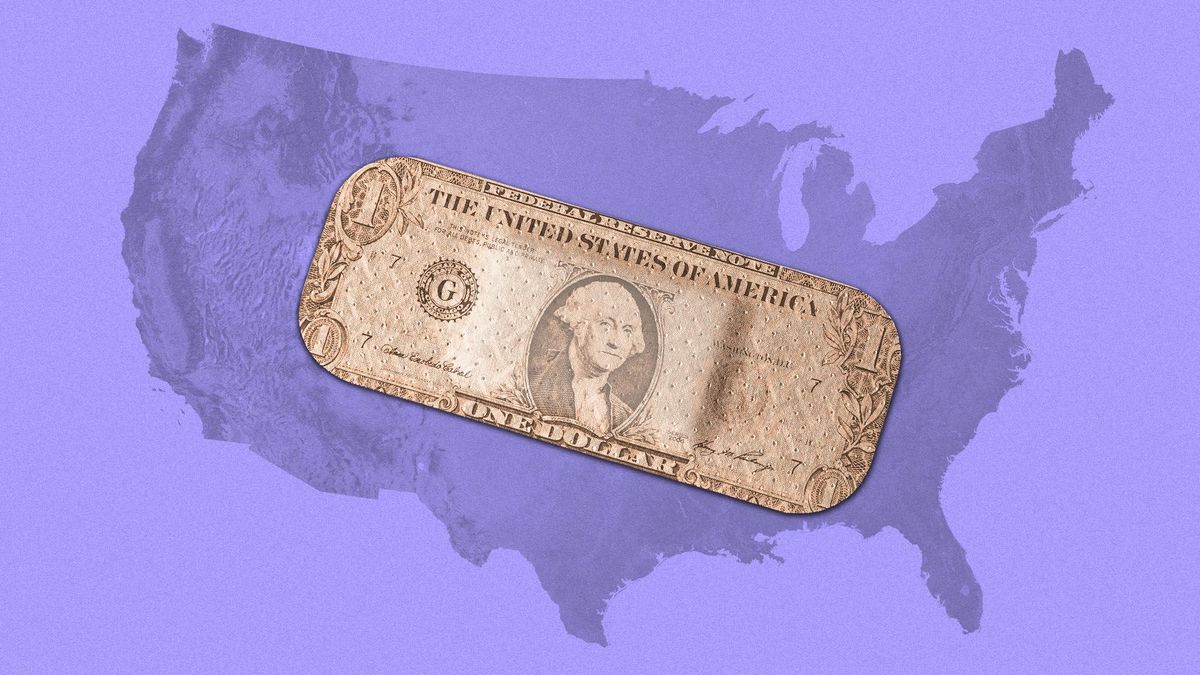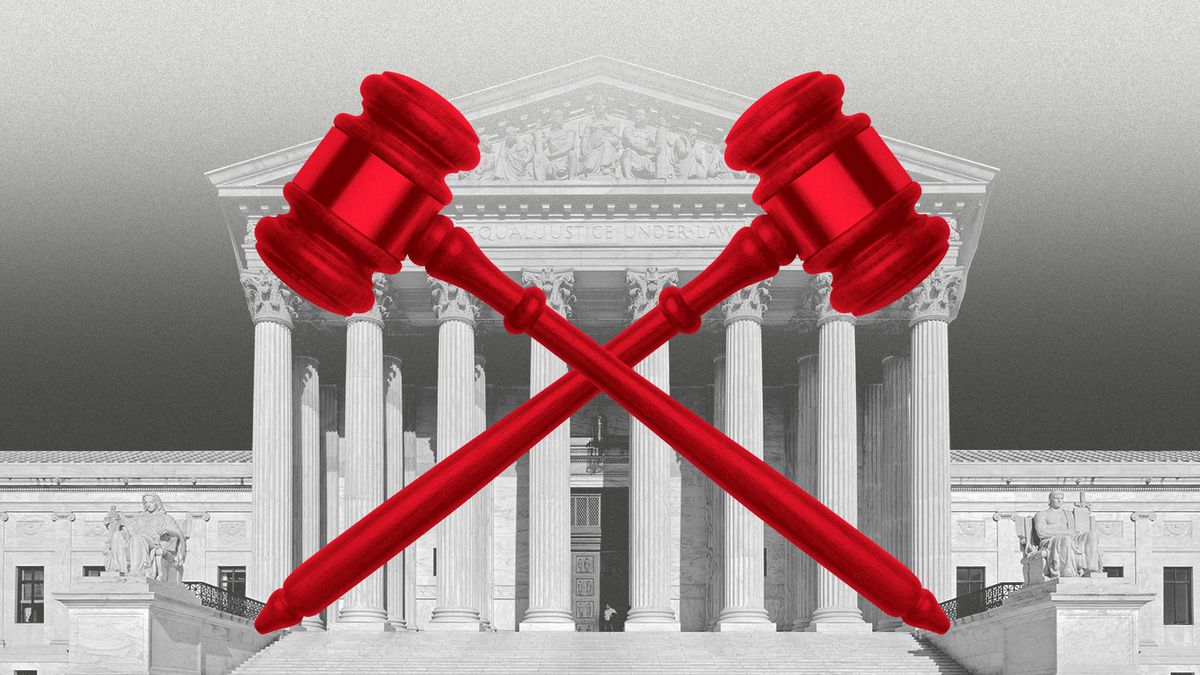The bill will not receive committee markups and includes $7.38 billion for IHS, $1.72 billion less than the amount requested by the President.
WASHINGTON, D.C. (July 29, 2022): The Senate Appropriations Subcommittee has released its fiscal year (FY) 2023 Interior, Environment, and Related Agencies bill with $80.4 million for urban Indian health— $7 million above the current enacted level, and $32 million below the President’s request. The bill also authorizes $7.38 billion for the Indian Health Service (IHS), an increase of $762 million from FY 2022, but $1.72 billion below the President’s request. Thanks to the robust advocacy efforts from NCUIH, Urban Indian Organizations (UIOs) and Tribes alike, the bill text provides $5.577 billion of advance appropriations for IHS for FY 2024. The bill will not receive any committee markups. Other key provisions include $9 million to improve maternal health, increased funding for mental health programs, and expanded funding for community health representatives. A more detailed analysis follows below.
The Committee is not going to conduct markups and it is expected that there will be a continuing resolution when FY22 funding expires on September 30, 2022. NCUIH will continue to advocate for full funding for IHS and urban Indian health with Advance Appropriations for FY23 as negotiations proceed later in the year.
“NCUIH is grateful for the Committee’s inclusion of $80 million for urban Indian health for Fiscal Year 2023, but disappointed to see the reduced request from last year given all the growing costs of inflation. While the proposed amount would not fully fund the Indian Health Service, we are grateful for the inclusion of critical advance appropriations. We thank all members of the Committee for their efforts to provide resources for Native healthcare and achieve advance appropriations. The Indian Health Service has worked with inadequate and unstable funding for too long, and we hope that the federal government can finally fulfill its trust responsibility to Natives and provide the care we need” – Francys Crevier (Algonquin), CEO, NCUIH.
Advance appropriations is a long-standing priority for Indian Country. Advocates have continuously requested that Congress provide stable funding for IHS, especially considering the impact of the COVID-19 pandemic, which disproportionately affected American Indians and Alaska Natives (AI/ANs) who lost their lives at the highest rates of any population. The President’s budget proposed to shift IHS from discretionary funding to mandatory funding in FY 2023. During this time, Native health advocates requested advance appropriations. During the last few months alone, NCUIH sent letters to request Senate and House leadership to allow for advance appropriations, and the National Congress of American Indians (NCAI) and the National Indian Health Board (NIHB) sent an action alert to request advance appropriations by the House Appropriations Committee. In addition, NCUIH, along with 28 Representatives and 12 Senators, requested advanced appropriations for IHS until such time that authorizers move IHS to mandatory spending.
| Line Item |
FY22 Enacted |
|
FY23 TBFWG Request |
FY23
President’s
Budget |
FY23
House Proposed |
FY23 Senate Proposed |
| Urban Indian Health |
$73,424,000 |
|
$949,900,000 |
$112,514,000 |
$200,000,000 |
$80,424,000 |
| Indian Health Service |
$6,630,986,000 |
|
$49,800,000,000 |
$9,100,000,000 |
$8,100,000,000 |
$7,380,000,000 |
House Appropriations Status
The House passed H.R. 8294 as part of six-bill package on July 21, 2022. The bill included $200 million for urban Indian health, but fails to include advance appropriations for IHS.
Background and Advocacy
On March 28, 2022, President Biden released his budget request for FY 2023 which included, for the first time ever, $9.1 billion in mandatory funding for IHS for the first year with increased yearly funding over the next ten years, and $112.5 million for Urban Indian Health— a 53.2% increase above the FY 2022 enacted amount of $73.4 million.
Full Funding, Advance Appropriations, and Mandatory Funding a Priority
NCUIH requested $49.8 billion for the Indian Health Service and $949.9 million for Urban Indian Health for FY 2023 (as requested by the Tribal Budget Formulation Workgroup (TBFWG) recommendations), Advance appropriations for IHS, and support of mandatory funding for IHS (including UIOs).The considerable increase for FY 2023 is a result of Tribal leaders providing budgetary recommendations for gradual funding increases over the last 10-12 years to address growing health disparities that have gone largely ignored by the federal government. ), advance appropriations for IHS, and support of mandatory funding for IHS (including UIOs).The considerable increase for FY 2023 is a result of Tribal leaders providing budgetary recommendations for gradual funding increases over the last 10-12 years to address growing health disparities that have gone largely ignored by the federal government.
On April 5, 2022, NCUIH President and CEO of the Indian Health Center of Santa Clara Valley, Sonya Tetnowski (Makah Tribe), testified before and submitted public witness written testimony to the House Appropriations Subcommittee on Interior, Environment, and Related Agencies regarding FY 2023 funding for UIOs. Most recently, on July 28, 2022, NCUIH testified before the House Subcommittee for Indigenous Peoples in the United States in support of authorizing advance appropriations authority to IHS. In her testimony, Maureen Rosette, NCUIH Board member and Chief Operations Officer of NATIVE Project, emphasized how advance appropriations would no longer subject IHS and Tribal health facilities, especially UIOs, to government shutdowns, automatic sequestration cuts, and continuing resolutions.
NCUIH also worked closely with Representatives Gallego and Grijalva on leading a Congressional letter to the House Committee on Appropriations in support of increasing the urban Indian health line item for FY 2023. The letter had bipartisan support and called for the highest possible funding for Urban Indian Health up to the TBFWG’s recommendation of $949.9 million and advanced appropriations for IHS until such time that authorizers move IHS to mandatory spending.
Senate Bill Highlights
Indian Health Service: $7.38 billion
- Bill Report: “For fiscal year 2023, the Administration proposed mandatory funding for all IHS accounts, however at this time no such change has been enacted into law. Therefore, the Committee recommendation provides $7,380,063,000 for IHS for fiscal year 2023 discretionary funding, an increase of $749,077,000 to the enacted level and a decrease of $1,528,937,000 to the requested level of mandatory funding.”
Urban Indian Health: $80.424 million
- Bill Report: “The recommendation includes $80,424,000 for the Urban Indian Health program, $7,000,000 above the enacted level and $32,089,000 below the budget request.”
- UIO Interagency workgroup: “The Committee is committed to improving the health and wellbeing of American Indians and Alaska Natives [AI/AN] living in urban Indian communities. Despite the excellent efforts of Urban Indian Organizations, AI/AN populations continue to be left out of many Federal initiatives. Therefore, the Committee directs the Indian Health Service to continue to explore the formation of an interagency working group to identify existing Federal funding supporting Urban Indian Organizations [UIOs] and determine where increases are needed, where funding is lacking, or what programs should be amended to allow for greater access by UIOs; to develop a Federal funding strategy to build out and coordinate the infrastructure necessary to pilot and scale innovative programs that address the needs and aspirations of urban AI/ANs in a holistic manner; develop a wellness centered framework to inform health services; and meet quarterly with UIOs to address other relevant issues. In addition to the Indian Health Service, the working group should consist of the U.S. Department of Health and Human Services, U.S. Department of Housing and Urban Development, U.S. Department of Agriculture, U.S. Department of Justice, U.S. Department of Education, U.S. Department of Veteran Affairs, U.S. Department of Labor, the Small Business Administration, the Economic Development Agency, FEMA, the U.S. Conference of Mayors, and others as identified by UIOs.”
Advance Appropriations for IHS: $5.577 billion
- Bill Report: “The Committee recommendation provides advance appropriations for the Indian Health Services and Indian Health Facilities accounts totaling $5,577,077,000 for fiscal year 2024. That amount is equal to the fiscal year 2023 recommendation for those accounts with the exception of funding provided for Electronic Health Records, Sanitation Facilities Construction, and Health Care Facilities Construction which are provided only an annual appropriation in recognition of the project-based nature of those accounts. Overall, the vast majority of Indian Health Service funding, and all such funding supporting the provision of health services to Native Americans such as patient care and medical equipment, is provided an advance appropriation. The Committee recognizes that budget uncertainty due to temporary lapses of appropriations and continuing resolutions have an effect on the orderly operations of critical healthcare programs for Native American communities. Existing challenges related to recruitment and retention of healthcare providers, administrative burden and costs, and financial effects on Tribes were identified areas of concern in a Government Accountability Office [GAO] study (GAO–18–652). This budgetary change will enable IHS to continue to provide health services without interruption or uncertainty, improving the quality of care and providing peace of mind for patients and medical providers.”
Improving Maternal Health: $9 million
- Bill Report: “$9,000,000 has been included for the maternal health initiative, as estimated in the mandatory proposal. Pregnancy-related deaths have increased generally in the United States with pregnancy-related deaths among Native American women more than twice the non-Hispanic white women rate. The Committee continues to direct IHS to submit a report to the Committee within 180 days of enactment of this act on use of funds, updates on staff hiring, status of related standards, and the amount training provided with these funds.”
Dental Therapy Education Program: $2 million
- Bill Report: “Within the funds provided, $2,000,000 is to be used for the dental health therapy education program that currently trains students in Alaska, Washington, Idaho, and Oregon. The Committee also directs the Service to continue the cooperative agreement with the National Indian Health Board from within existing funds.”
Dental Health: $260.326 million
- Bill Report: “The recommendation includes $260,326,000 for dental health, an increase of $24,538,000 above the enacted level. The Service is encouraged to coordinate with the Bureau of Indian Education [BIE] to integrate preventive dental care at schools within the BIE system.”
Electronic Health Records: $190 million
- Bill Report: “The Committee is aware there is a need for a new electronic health record system to improve the overall interoperability, efficiency, and security of the Service’s information technology system and provides $190,000,000 for this effort. Further, the Committee understands many Tribes recently upgraded computer systems for the new Department of Veterans Affairs [VA] system, and it is important these systems are compatible. It is the Committee’s expectation that the Service will be able to use the compiled information gathered during this recent effort with VA to inform both the Service and the Committee on which Tribes use their own system and the estimated costs. Finally, the Committee notes that the Electronic Health Records is excluded from the advance appropriation for fiscal year 2024 as specified in the bill.”
Produce Prescription Pilot Program
- Bill Report: “The recommendation maintains fiscal year 2022 funding to implement a produce prescription program to increase access to produce and other traditional foods in accordance with the explanatory statement accompanying the Consolidated Appropriations Act, 2022, Public Law 117–103.”
Mental Health: $127 million
- Bill Report: “The recommendation includes $127,088,000 for mental health programs, an increase of $5,142,000 above the enacted level. The bill maintains $6,946,000 for the behavioral health integration initiative to better integrate treatment programs for mental health and substance abuse problems and $3,600,000 for the suicide prevention initiative.”
Alcohol and Substance Abuse: $270.49 million
- Bill Report: “The recommendation includes $270,490,000 for alcohol and substance abuse programs, an increase of $12,147,000 above the enacted level.”
Opioid Grants: $13 million
- Bill Report: “To better combat the opioid epidemic, the recommendation includes $13,000,000 to continue a Special Behavioral Health Pilot Program, as authorized by Public Law 116–6. The Director of IHS, in coordination with the Assistant Secretary for Mental Health and Substance Abuse, shall award grants for providing services, provide technical assistance to grantees under this section, and evaluate performance of the program.”
Community Health Representatives: $67 million; CHAP Expansion: $5 million
- Bill Report: “The recommendation includes $67,000,000 for the community health representatives program, an increase of $3,321,000 above the enacted level. The Committee recommendation includes $5,000,000 for the Community Health Aide Program [CHAP] expansion with instruction that this expansion should not divert funding from the existing CHAP program which shall continue at current levels.”
Headache Centers of Excellence
- Bill Report: “The Committee recognizes that over 560,000 people under IHS care are living with migraine or severe headache disorders and that American Indian and Alaskan Native [AI/AN] communities have the highest prevalence of both disabling headache disorders and concussion/mild traumatic brain injuries among any racial or ethnic group in the United States. The Committee is concerned that AI/AN patients with these and other disabling headache disorders often do not receive necessary specialty care. There are currently no IHS-affiliated physicians certified with training in the specialty field of Headache, and there is an insufficient number of IHS neurologists overall. The Committee encourages IHS to consider the feasibility of establishing Headache Centers of Excellence in future fiscal years.”





